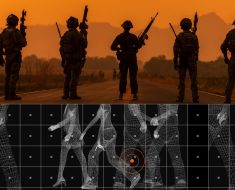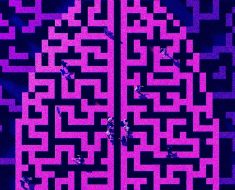“With every one shop that I got to take [items] down, another 10 popped up out of nowhere,” Jödicke says. “I almost wanted to give up on my art, because I felt so devastated that people would just take my work and profit out of it, and I didn’t see anything from it.”
The widespread popularity of Where Light and Dark Meet only magnified this feeling, making it unclear where Jödicke should start. “Where infringing use is widespread, it may not be feasible to pursue every single infringement,” Eziefula says. “Especially if overseas from the artist’s home jurisdiction, nor worthwhile, where the damage caused is minimal.”
Too often, however, the damage is significant—both in diverting income from artists and in diluting their brand, making them a more difficult proposition for potential clients. People often feel entitled to artwork they find online, and artists experience hostility when they try to assert their ownership of it. Yet, that entitlement is exactly what broke the dam for Jödicke and paved the way for him to fight back.
In 2020, Jödicke caught a lucky break of sorts when Aaron Carter—pop singer and brother of the Backstreet Boys’ Nick—used one of the artist’s other pieces, titled Brotherhood, to promote his clothing line on Twitter (now X). The image, which shares the same vibe as Jödicke’s galaxy wolf, depicts two lions butting heads, one white and one black, as their manes curl in the shape of a heart. A frustrated Jödicke called Carter out on Twitter. Demands for credit and or removal are often met with stony silence. On this occasion Jödicke received a response:
“you should’ve taken it as a compliment dick a fan of MINE sent this to me,” Carter wrote alongside a repost of Jödicke’s tweet, according to an August 2020 court filing. “oh here they go again, the answer is No this image has been made public and im [sic] using it to promote my clothing line… guess I’ll see you in small claims court FUCKERY.”
For the first time, thanks to Carter’s retort, Jödicke had options. The public nature of this exchange had IP lawyers lining up to represent him, and, after years of watching others make money from his art, Jödicke called Carter on his threat.
After a year of court proceedings in US District Court in central California, Jödicke says he got a settlement in the low five figures for violation of his copyright. It was a revelatory moment. “I had never really had any kind of justice,” Jödicke says. “That really, really motivated me to seek further legal advice and see if I could do something against all the art theft.” (Carter died in 2022.)
That was a singular infringement with an immediately identifiable infringer. Countering the widespread sale of his work on various pieces of merchandise would be a far more challenging task. His win against Carter, however, brought him to the attention of UK-based Edwin James IP. The firm approached Jödicke to offer its resources, specifically its specialism in stopping counterfeiters from domains where copyright law is more lax, like China.





